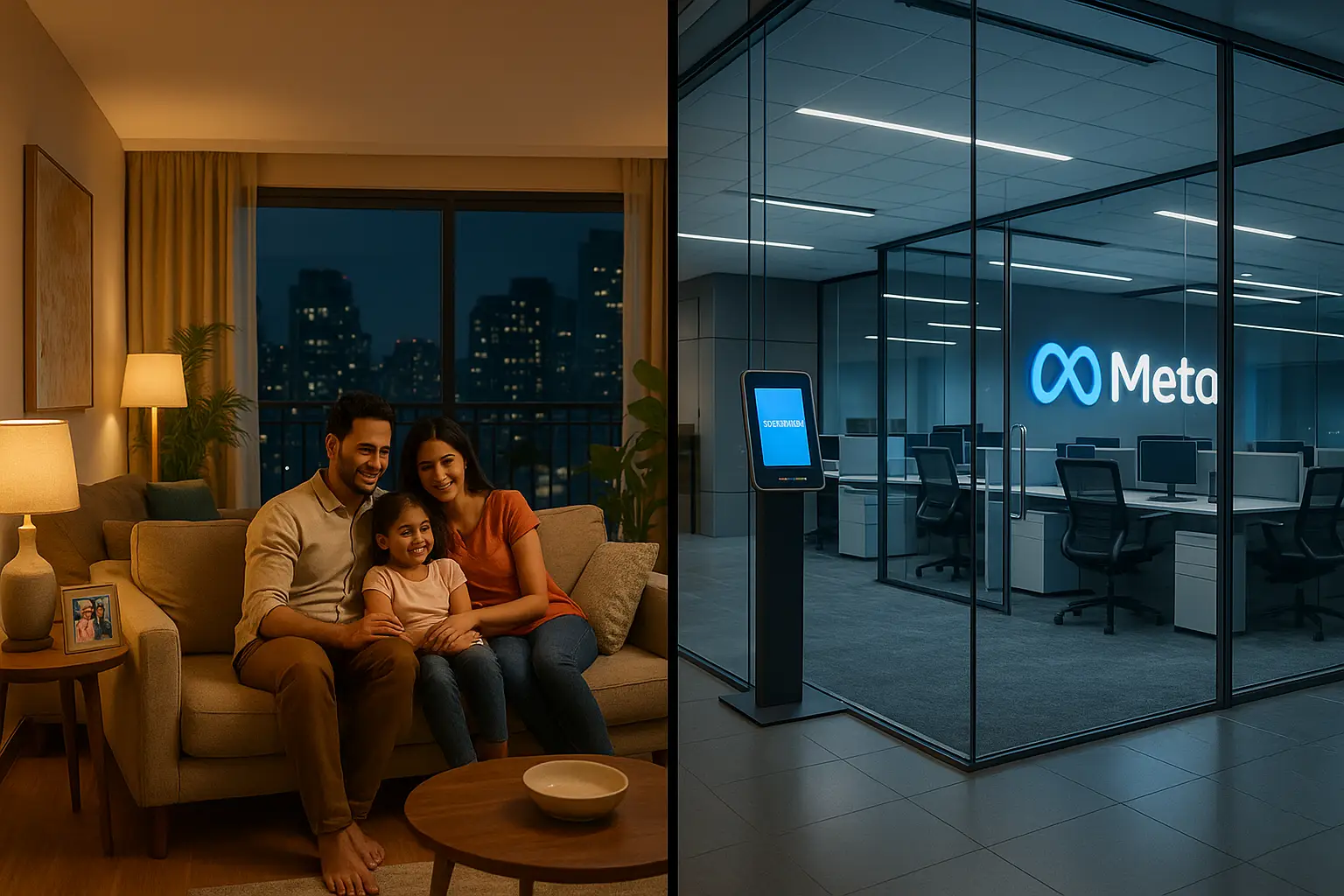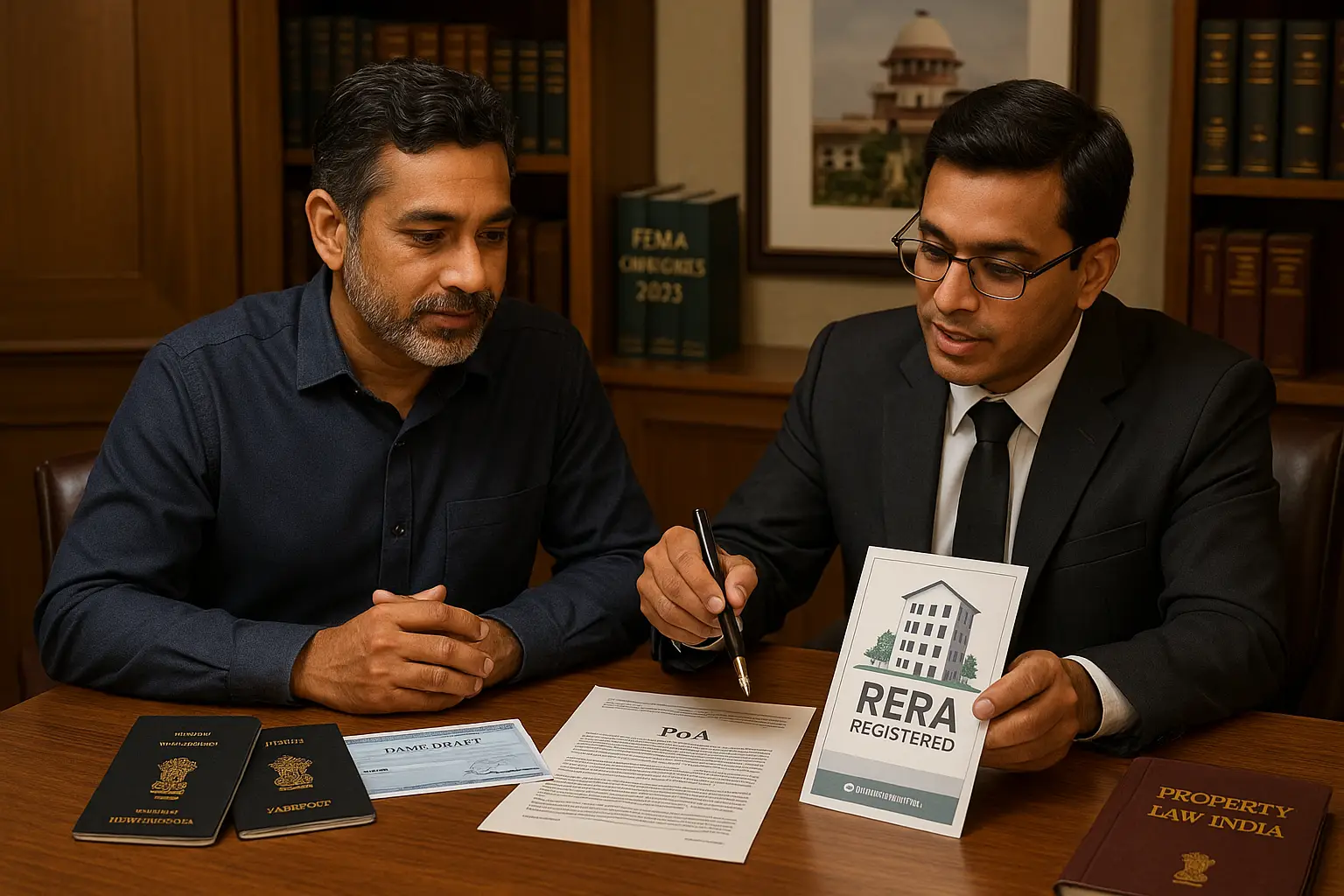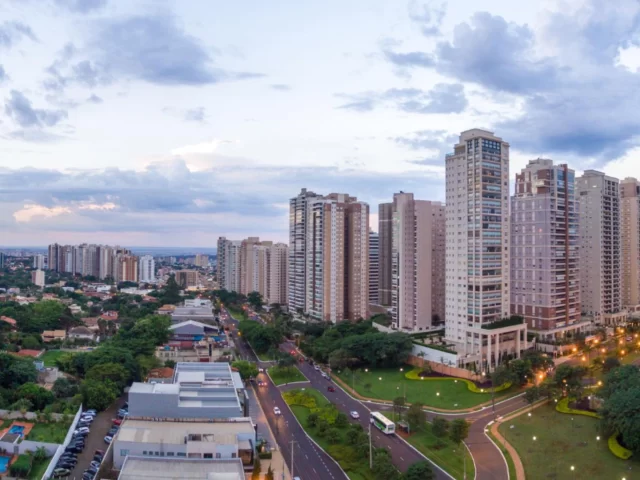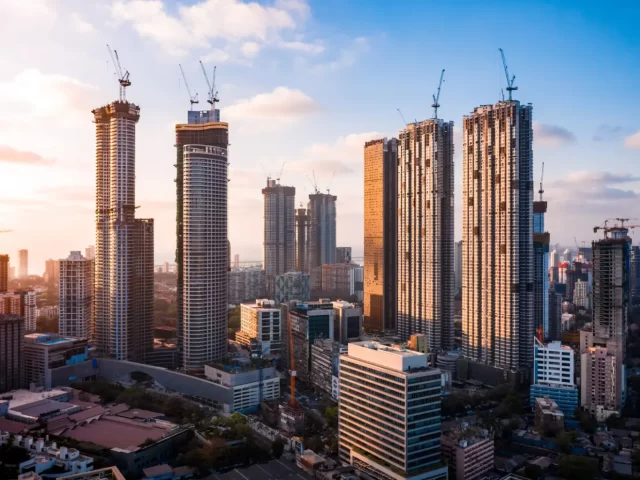Why NRIs Are Eyeing Indian Real Estate
In 2025, Indian real estate continues to emerge as a preferred asset class for Non-Resident Indians (NRIs) seeking stability, appreciation, and emotional belonging. With a combination of favorable currency exchange rates, digital accessibility, and improved legal transparency, NRIs now have more confidence and convenience than ever before to invest back home.

Whether it’s a luxurious second home in Mumbai, a high-yield commercial space in Gurugram, or a retirement villa in Kerala, Indian property now offers a wide array of options tailored to global Indian investors. The recent expansion of RERA implementation across states, digitization of land records, and hassle-free home loan processes are just some of the changes making the journey smoother.
But beyond finances, investing in India allows NRIs to stay connected with their roots. Many see it as a way to build a legacy, provide security for aging parents, or simply ensure they always have a home to return to.
This blog serves as your complete 2025 roadmap — covering legal frameworks, city-wise comparisons, tax rules, home loan options, and expert tips. Whether you’re in Dubai, New York, or Singapore, this guide will help you make a confident, well-informed decision about investing in India’s dynamic and growing property market.
Investment Landscape in 2025 – What’s New for NRIs
India’s real estate market in 2025 presents an evolved, more investor-friendly environment — especially for NRIs. With regulatory clarity, improved tech infrastructure, and a steady demand for both residential and commercial spaces, the market is better positioned than ever before to welcome global Indian investors.

Key Developments Driving NRI Investments in 2025:
-
100% Digital Onboarding:
From virtual site tours to e-signature property agreements, NRIs can now complete end-to-end transactions online without stepping foot in India. -
Smart Cities & Infrastructure Boom:
Tier-1 and Tier-2 cities like Pune, Indore, Kochi, and Noida are being transformed with metro expansions, expressways, data centers, and urban planning. These cities are now serious contenders for investment beyond the traditional metros. -
FEMA and RERA Streamlining:
Updated FEMA norms have eased remittance limits and increased transparency for property-related transactions. Additionally, the RERA Act is more strictly enforced, reducing risks for buyers and ensuring timely project delivery. -
Developer Outreach Programs:
Builders are increasingly hosting global property expos and offering customized deals for NRI clients, including flexible payment plans and guaranteed rental returns.
Investment Readiness Snapshot for 2025:
| Feature | 2023 Status | 2025 Improvement |
|---|---|---|
| Property Registration | Semi-digital | Fully digital with OTP & Aadhaar |
| RERA Coverage | Limited to top cities | Now active in 90% of Indian districts |
| Home Loan Processing for NRIs | 10–15 days | Within 3–5 working days |
| Title Verification | Manual legal process | Blockchain-based e-verification |
| Repatriation Limit | USD 1 million/year | Unchanged, but easier to process |
Why It Matters:
These changes aren’t just technical—they reduce uncertainty, lower legal risk, and allow NRIs to explore diverse asset classes such as smart homes, REITs, and branded residences. As India eyes a $1 trillion real estate economy by 2030, 2025 is shaping up as the ideal entry point for global Indian investors.
Top Cities for NRI Investment in India
As we step into 2025, real estate growth is no longer limited to traditional metros. Several Indian cities have emerged as reliable, high-return destinations for NRIs looking to invest in residential and commercial properties. These locations offer a balanced mix of infrastructure, lifestyle, rental demand, and legal transparency — making them ideal choices for NRIs across the globe.
Here are the top cities NRIs are investing in:
1. Mumbai – India’s Financial Powerhouse
-
High appreciation zones like Bandra, Powai, and Thane
-
Excellent rental income potential from expats & corporates
-
Strong builder reputation, RERA-compliant developments
-
Great for long-term wealth creation
2. Bengaluru – IT Capital with High Rental Demand
-
Areas like Whitefield, Sarjapur Road, and Electronic City attract tech professionals
-
Steady 4–6% rental yield
-
Favorable for NRIs working in IT or planning to return
-
Smart homes & co-living spaces trending in 2025
3. Hyderabad – Affordable Yet Booming
-
Lower entry prices compared to other metros
-
Strong infrastructure push: Pharma City, Metro Phase-II
-
Excellent ROI potential in Gachibowli, HITEC City
-
Zero annual property tax for select zones
4. Gurugram & Noida – NCR’s NRI-Focused Markets
-
Luxury townships and smart commercial hubs
-
Excellent connectivity via expressways, metros, and airports
-
Popular with Gulf-based NRIs due to proximity to Delhi
-
Noida Extension, Sector 150, and DLF Cyber City are hot picks
5. Pune – Education, IT & Urban Lifestyle Hub
-
NRI-friendly gated societies in Wakad, Kharadi, Hinjewadi
-
Low vacancy rates, high working population
-
Balanced mix of ROI and lifestyle benefits
-
Growing interest from Canada/UK-based NRIs
6. Kochi – The Emerging Coastal Gem
-
Popular for vacation homes and waterfront properties
-
Smart city investments and port-driven growth
-
Great for emotional & lifestyle investments
-
Strong Gulf NRI presence, especially from UAE and Qatar
| City | Best For | Rental Yield | Property Type |
|---|---|---|---|
| Mumbai | Long-term ROI | 2.5–4% | Luxury Residential |
| Bengaluru | IT Crowd Rentals | 4–6% | Mid-Range Apartments |
| Hyderabad | Affordable Investment | 3.5–5% | Under-Construction Units |
| Gurugram / Noida | Luxury + Commercial | 4–7% | Mixed-Use Projects |
| Pune | Balanced Growth | 3–5% | Gated Communities |
| Kochi | Lifestyle/Second Home | 2–4% | Waterfront Villas |
Residential vs Commercial Investment – What Suits You Best?
Choosing between residential and commercial real estate is one of the most critical decisions NRIs must make while investing in India. Both asset classes offer unique advantages depending on your financial goals, risk appetite, and investment timeline.

While residential properties appeal to those seeking emotional satisfaction, rental security, or a second home in India, commercial properties tend to offer better yields and appreciation over time, especially in IT and retail hubs.
Here’s how the two stack up side-by-side:
Residential Property – Ideal for:
-
NRIs wanting a retirement home or second base in India
-
Buyers looking for emotional value, future relocation, or family use
-
Safe, long-term capital appreciation
-
Lower risk and simpler management
Commercial Property – Ideal for:
-
Investors focused purely on rental returns and ROI
-
Higher entry cost, but stronger yield in business districts
-
Suitable for long-term capital growth and leasing to enterprises
-
Requires more due diligence and property management
| Criteria | Residential | Commercial |
|---|---|---|
| Rental Yield | 2% – 4% | 6% – 9% |
| Risk Level | Low | Moderate to High |
| Liquidity | Moderate | Low to Moderate |
| Management Complexity | Simple | Requires active oversight |
| Ideal For | Personal use, rental, family | High ROI, business leasing |
Expert Tip:
If you’re unsure, consider starting with a residential investment in a developing suburb or smart city corridor. Once familiar with the Indian market, gradually diversify into commercial properties or REITs (Real Estate Investment Trusts) for passive income with professional management.
Legal & Regulatory Framework for NRIs
Investing in Indian real estate as an NRI is easier than ever — thanks to digitized paperwork, RERA protections, and simplified FEMA guidelines. But it’s crucial to understand the legal nuances before making your move. From property types to ownership laws, here’s everything NRIs need to know to stay compliant and protected.

Who is an NRI under Indian Law?
An NRI (Non-Resident Indian) is defined under FEMA (Foreign Exchange Management Act) as an Indian citizen residing outside India for more than 182 days in a financial year. Only NRIs and OCI (Overseas Citizens of India) cardholders are eligible to invest in Indian real estate.
What NRIs Can Buy in India:
| Allowed | Not Allowed |
|---|---|
| Residential property (flat, villa, plot) | Agricultural land |
| Commercial property (office, shops) | Plantation property |
| Farmhouses (only if inherited or gifted) | Farm land (unless inherited) |
Key Legal Requirements to Keep in Mind:
-
FEMA Guidelines
All real estate transactions by NRIs must be in INR through regular banking channels. Funds must come via NRE/NRO/FCNR accounts. -
Power of Attorney (PoA)
If you’re abroad, appoint a trusted relative or legal rep in India via a registered Power of Attorney to manage documentation, registration, or possession. -
RERA Registration
Only invest in RERA-registered projects. Check the state’s RERA website for the builder’s compliance status and delivery record. -
Title Due Diligence
Hire a property lawyer to verify:-
Title chain
-
Encumbrance certificate
-
Developer’s ownership rights
-
Land use approval
-
-
TDS Deduction
At the time of property sale by NRI, the buyer must deduct TDS at 20% (or more based on capital gain) and deposit it with the Income Tax Department. -
Repatriation Rules
You can repatriate up to USD 1 million per financial year, including principal and capital gains — provided taxes are paid and Form 15CA/CB is submitted.
Bonus Legal Checklist for NRIs:
- Use NRE/NRO accounts for transactions
- Get sale deed registered within 4 months
- Avoid cash transactions – always use bank transfers
- Register PoA in Indian Embassy (if issued abroad)
- Retain all sale receipts, tax proofs, and builder agreements
- File IT returns even if you earn rental income in India only
Taxation Rules & Repatriation of Funds
Understanding tax liabilities is essential for NRIs investing in Indian real estate. From rental income to capital gains and fund repatriation, every stage of your property journey has tax implications. The good news? India has structured systems and bilateral agreements to prevent double taxation and ensure ease of compliance.

Key Tax Components for NRIs:
1. Rental Income Taxation
-
Taxed under “Income from House Property” in India
-
Standard deduction of 30% allowed on rental income
-
TDS of 30% to be deducted by the tenant (if rent exceeds ₹50,000/month)
2. Capital Gains Tax
-
Short-term Capital Gains (STCG): If property is sold within 2 years, taxed as per income slab
-
Long-term Capital Gains (LTCG): After 2 years, taxed at 20% with indexation benefits
3. TDS on Property Sale
-
Buyer must deduct TDS at source
-
20% for LTCG, can go up to 30%+ surcharge depending on slab
-
File Form 13 to request lower or NIL TDS certificate (if applicable)
4. Double Taxation Avoidance Agreement (DTAA)
India has DTAA with 90+ countries (including the US, UK, UAE, Canada). This ensures that NRIs are not taxed twice on the same income.
The Future of Luxury Living in Noida
Noida’s luxury real estate market is no longer playing catch-up—it’s setting the benchmark for modern, lifestyle-driven living in India. What once defined luxury—location and square footage—has now evolved into a comprehensive ecosystem of technology, wellness, personalization, and privacy.
From private elevators that redefine exclusivity, to rooftop infinity pools offering skyline serenity, and smart homes that respond to your voice, the city’s high-end projects are catering to a generation that demands more than just a home—they seek an experience.
As global Indians return to the country and millennial entrepreneurs rise in affluence, the demand for these elevated living standards is only set to grow. Developers are responding with amenity-rich, future-ready residences in key sectors like Sector 150, 94, 44, and 128, bringing international luxury trends to the heart of Noida.
For buyers and investors alike, now is the time to look beyond brochures and floor plans—amenities are the new currency of long-term value.
Whether you’re searching for your dream home or your next big investment, Noida’s luxury real estate scene is ready to deliver. The future isn’t just luxurious—it’s thoughtfully curated, intelligently connected, and unmistakably premium.
Repatriation of Funds – Key Rules:
| Category | Rule Summary |
|---|---|
| Ownership Type | Property must be purchased under FEMA-compliant channels (NRE/NRO/FCNR) |
| Limit | Up to USD 1 million/year per individual (from sale proceeds or rent) |
| Tax Clearance Required | Submit Form 15CA (online) & Form 15CB (CA-certified) before transfer |
| Capital Gains Repatriation | Allowed after paying applicable LTCG or STCG taxes |
| Joint Ownership | Repatriation limit applies per co-owner (up to $1 million each) |
NRI Tax & Repatriation Checklist:
- Use NRE/NRO accounts for buying & receiving rent
- Declare Indian income in your ITR (India)
- Claim DTAA benefits in your resident country ITR
- Retain proof of tax paid (TDS certificate/Form 26AS)
- Consult a CA for repatriation certificate (15CB) before funds transfer
Financing Options for NRIs

Gone are the days when NRIs had to jump through hoops to finance property purchases in India. In 2025, banks and housing finance institutions are aggressively offering NRI-specific home loans with flexible terms, minimal paperwork, and digital processing — making property acquisition more seamless and accessible than ever.
Whether you’re buying a ready-to-move apartment in Pune or a commercial office in Gurugram, here’s how to finance it smartly.
Top Sources of Property Financing for NRIs:
1. NRI Home Loans from Indian Banks
-
Offered by SBI, HDFC, ICICI, Axis, and PNB Housing
-
Tenure: Up to 20–30 years
-
Interest rates: Starting from 8.5% p.a.
-
EMI must be paid through NRE/NRO account only
2. Self-Financing Through NRE/NRO/FCNR Accounts
-
Ideal for short-term or outright purchase
-
Avoids debt burden but may require large capital
-
Better for ready-to-move or resale properties
3. Joint Loans with Resident Indians
-
Can be taken jointly with a parent, sibling, or spouse residing in India
-
Co-borrower must meet bank’s eligibility criteria
-
Repayment responsibility is shared
NRI Loan Eligibility Checklist:
- Must be an NRI/OCI with valid passport & visa
- Should have stable income from a recognized foreign employer
- Minimum 2 years of overseas employment preferred
- Credit score (India or global) is assessed
- Property must be RERA-approved and loan-eligible
| Financing Method | Best For | Pros | Cons |
|---|---|---|---|
| NRI Home Loan | New property buyers | Long tenure, tax benefits | EMI burden, interest cost |
| Self-Financing (NRE/NRO) | Cash-rich buyers | No debt, quick processing | Ties up large capital |
| Joint Loan with Resident | Family-owned properties | Shared responsibility | Dependent on co-borrower profile |
Property Management – Handling Real Estate Remotely
For NRIs, managing property from thousands of miles away can be challenging. However, with the rise of digital tools, professional services, and legal safeguards, remote property ownership in India is no longer a logistical nightmare.
The first and most important step is appointing a reliable property manager or local representative through a registered Power of Attorney (PoA). This individual can handle documentation, attend society meetings, supervise maintenance, and even represent you in rental agreements or disputes.
A growing number of NRIs are now using tech-enabled platforms to monitor rental income, track property expenses, and schedule maintenance — all from their smartphone. These platforms offer dashboards that show tenant details, rent collection status, service requests, and even occupancy trends across locations.
Additionally, you can enter into a lease agreement using digital signature tools that are valid under Indian contract law. Most states now allow e-stamping and online rental registration, saving NRIs the hassle of couriering documents or visiting India for minor legal formalities.
Security is another concern — and it’s now possible to install remote surveillance, sensor-based lighting, and smart locks that can be controlled from anywhere in the world.
In cities like Bengaluru, Hyderabad, and Pune, professional property management agencies offer annual contracts to handle everything from tenant sourcing to legal compliance. Their fees typically range between 8%–10% of the monthly rent but often include end-to-end service.
With the right combination of digital tools and trusted human support, NRIs can efficiently manage their investments, ensure tenant satisfaction, and safeguard property value — without stepping foot in India.
Risks & How to Mitigate Them
While the Indian real estate market offers great potential for NRIs, it also carries certain risks — particularly when managed from abroad. The key to successful investment lies in understanding these challenges and taking preventive measures from the start.
One of the most common risks is dealing with unreliable or non-compliant builders. Many NRIs have faced project delays, incomplete amenities, or even legal disputes due to inadequate due diligence. To mitigate this, always verify if the project is registered with RERA, and check the developer’s past delivery record, financial health, and legal clearances before booking.
Another issue is title-related complications. Lack of proper title verification can lead to ownership disputes or encumbrances that are hard to resolve from overseas. Engaging a real estate lawyer or legal consultant before making any payment is highly advisable.
Rental fraud is another common concern — particularly when local agents or tenants exploit the owner’s absence. Use property management services or hire a verified local representative to ensure timely rent collection, tenant screening, and property maintenance.
Tax-related errors, especially in TDS deductions or capital gains reporting, can lead to notices or penalties. Always consult a chartered accountant familiar with NRI taxation rules and repatriation laws.
Lastly, not updating your Power of Attorney or not clearly defining the scope of your representative’s responsibilities can lead to misuse. Use only registered, notarized PoA and limit its scope to specific actions with time-bound clauses.
By combining legal safeguards, professional services, and technology, NRIs can significantly reduce the risks of investing in Indian real estate and ensure a hassle-free experience.
Benefits of Real Estate Investment for NRIs
For NRIs, investing in Indian real estate is more than just a financial decision — it’s a strategic step toward long-term security, diversification, and emotional connection to one’s roots. The benefits go beyond mere capital appreciation, offering a mix of personal and portfolio advantages.
One of the most significant benefits is asset diversification. Real estate acts as a stable hedge against volatile market instruments like equities and global currencies. For NRIs earning in foreign currencies, property investments in India offer currency arbitrage and capital appreciation in INR — leading to enhanced portfolio value over time.
Secondly, real estate offers passive rental income, especially in cities with high demand from working professionals and students. Monthly rental earnings can be credited to NRO accounts and used locally or repatriated abroad, subject to RBI guidelines.
There’s also a strong emotional dimension to property ownership. Many NRIs purchase homes to stay connected to their hometown, provide housing for family, or plan for eventual retirement in India. The ability to return to a self-owned home offers a sense of continuity and cultural anchoring.
Additionally, NRIs can enjoy tax benefits under Indian law. Deduction on interest paid for home loans, depreciation claims on rental property, and benefits from Double Taxation Avoidance Agreements (DTAA) enhance post-tax returns.
Lastly, real estate often carries low volatility and tangible security compared to digital assets. It offers a physical, legally protected asset that can be used, rented, inherited, or sold.
In essence, for NRIs seeking stability, legacy, and smart long-term gains, Indian real estate remains one of the most rewarding asset classes available today.
Future Outlook – Is 2025 a Good Time to Invest?
The Indian real estate market is entering a new phase of stability and structured growth — making 2025 an opportune moment for NRIs to enter or expand their investments. Unlike previous decades marked by unregulated practices and delivery delays, today’s environment is shaped by legal accountability, digital convenience, and rising end-user demand.
India’s housing demand is projected to rise steadily through 2030, especially in urban centers and upcoming smart cities. Infrastructure projects such as expressways, international airports, metro corridors, and data center parks are expanding the boundaries of livable zones, which in turn is driving up property value in Tier 1 and Tier 2 cities.
Regulatory reforms such as stricter RERA compliance, unified digital land records, and single-window approvals have made the investment landscape more transparent and predictable — two things that NRIs have long demanded.
At the same time, global economic uncertainty, inflation pressures in Western markets, and currency fluctuations are prompting NRIs to seek safer, INR-denominated assets. Indian real estate fits this profile well — combining long-term returns with the advantage of emotional security and real use potential.
On the rental front, there’s been a resurgence in demand for co-living spaces, student housing, and commercial offices in tech zones. This is contributing to higher rental yields in cities like Bengaluru, Pune, and Hyderabad.
In short, 2025 offers a rare mix of affordability, clarity, and long-term upside. For NRIs willing to act with due diligence and professional guidance, this is a strategic time to build real estate assets in India.
Final Checklist for NRI Investors
Before you sign on the dotted line, it’s important to run through a final checklist to ensure your property investment in India is secure, compliant, and future-ready. This section consolidates all critical action points NRIs must address before, during, and after the purchase process.
-
Verify RERA Registration
Confirm that the project is registered with your state’s RERA authority. This protects you from delayed or unauthorized developments. -
Conduct Title Verification
Hire a qualified property lawyer to check for clear and marketable title, encumbrances, litigation history, and zoning permissions. -
Use Legal Banking Channels
Ensure all funds for property transactions come from NRE, NRO, or FCNR accounts. Avoid any cash dealings, even for token amounts. -
Appoint a Registered Power of Attorney
If you can’t be physically present in India, issue a notarized and consulate-attested PoA to a trusted individual for signing and registration duties. -
Check Loan Eligibility & Repayment Terms
Compare home loan offers from banks that cater to NRIs. Ensure you understand interest rates, tenure, EMI calculation, and repatriation restrictions. -
Understand Tax Obligations
Know your TDS liabilities, capital gains taxes, and how to file ITR in India. Keep Form 26AS and TDS certificates as proof. -
Plan Repatriation Properly
Maintain all transaction records and consult a CA before remitting sale proceeds or rental income abroad. File Form 15CA and 15CB if needed. -
Keep All Documentation in Order
Safely store sale deed, payment receipts, property tax slips, and possession certificates. Digital copies with backups are highly recommended.
Completing these steps ensures your investment is protected legally and financially — giving you peace of mind whether you’re living in India or abroad.





















